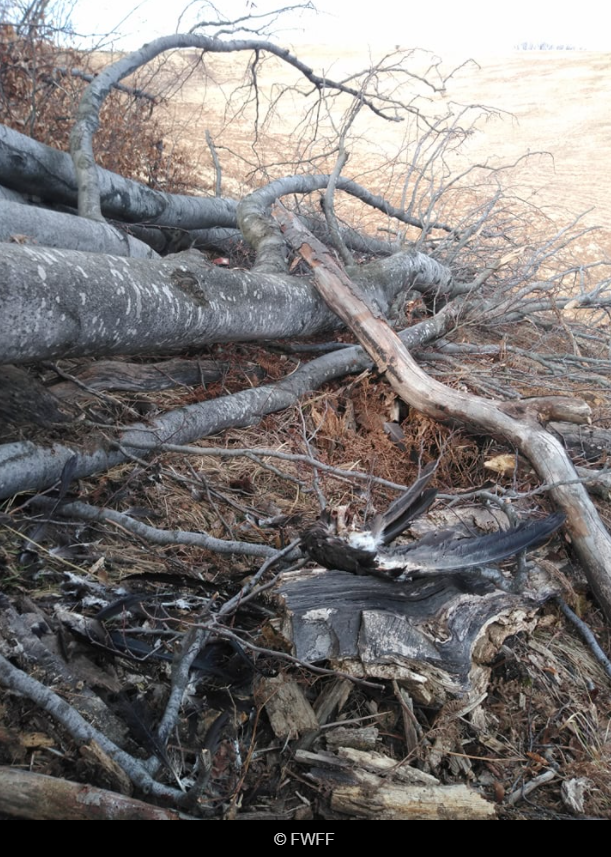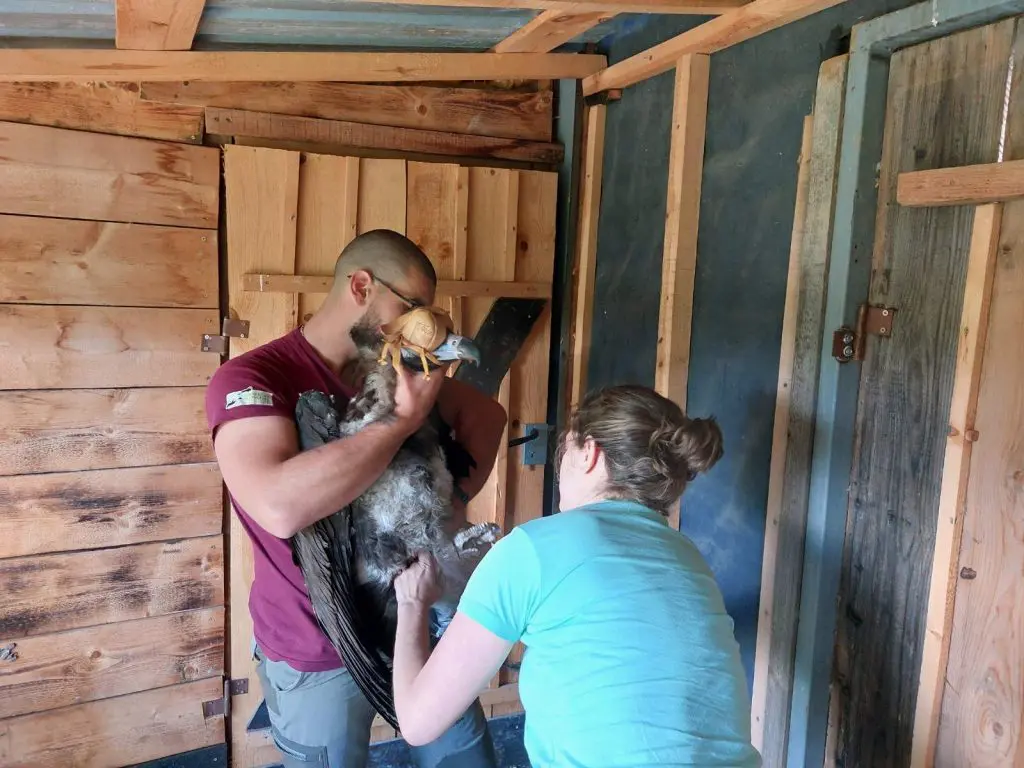
The Vultures Back to LIFE project finally found out what happened to the Cinereous Vulture Marina, who was missing for the past couple of months. Unfortunately, it’s not good news. A project team discovered that the Spanish Cinereous Vulture released in Bulgaria died from a natural disaster. This loss caused a significant blow to the efforts to reintroduce the species in the country that went extinct in the 1990s, especially since Marina was a promising bird with the potential to breed in the foreseeable future.
Marina’s reintroduction story
As well as releasing captive-bred birds, the Vultures Back to LIFE project primarily releases young Cinereous Vultures that were rescued and rehabilitated in the Los Hornos and AMUS centres in Spain and are donated to the project by the Junta de Extremadura. After these birds quarantine in AMUS, they are transferred to Bulgaria for their eventual release, an action coordinated by the Vulture Conservation Foundation (VCF). Marina, a female Cinereous Vulture, was part of the first transport group in 2018, where 12 birds arrived from Spain. The project team released Marina shortly after in Kotel, situated in the Balkan Mountains. She was one of the first birds to be released in the hope to establish a nesting population in the country in the coming years. Ever since her release, she has been successfully exploring Kotel, carrying out short excursions around the surrounding area before returning to the release site.
Natural disaster kills Marina
After more than two months without any GPS data and since Marina’s last observation on 23 December 2020, a Fund for Wild Flora and Fauna (FWFF) team finally found the young female Cinereous Vulture after her tag eventually sent a signal. They went on-site in Kotel Mountain and discovered that a giant beech tree fell on the bird due to a strong wind on the morning of 28 December 2020, resulting in Marina’s death. Under the fallen tree branches, the team discovered the GPS tag alongside the bird’s remains that appear to have been eaten by a fox. This site was traditionally used for several months by the formed pair of Marina and Zlosten. Luckily, Zlosten, another Spanish Cinereous Vulture reintroduced, who was also roosting nearby, remained alive and unaffected. It is a great loss as this was one of the three first formed pairs in the country thanks to the reintroduction project and was very likely to be the first to breed in the wild in Bulgaria this year for the first time since the species’ extinction in the 1990s.
The Vultures Back to LIFE team is deeply saddened by Marina’s death but will overcome this setback and continue to work diligently until the species successfully breeds again in Bulgaria!
Vultures Back to LIFE

Led by the wildlife conservation charity Green Balkans, with activities also implemented by the Fund for Wild Flora and Fauna, and bringing together partners from Bulgaria, Spain and Germany, Vultures Back to LIFE aims to reintroduce the cinereous or Eurasian black vulture to Bulgaria. The team will transfer and release around 60 birds, some from captive-breeding, but mostly coming from wildlife rehabilitation centers in Extremadura (Spain) into the wild in Bulgaria as well as creating supplementary feeding stations and improving populations of wild herbivores, improving the nesting conditions and creating artificial nest sites and tackling some of the major threats to vultures in the country such as insulating electricity pylons and illegal use of poison in the nature.











